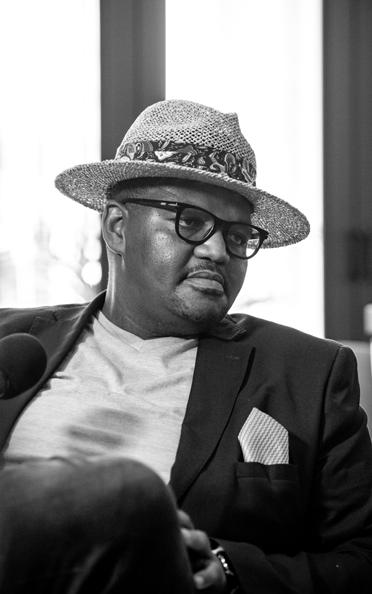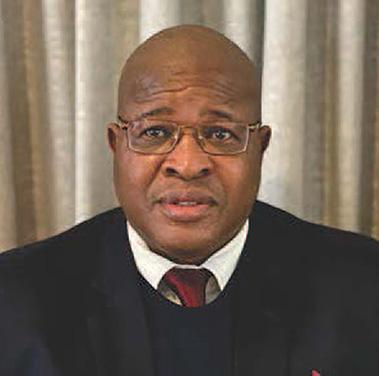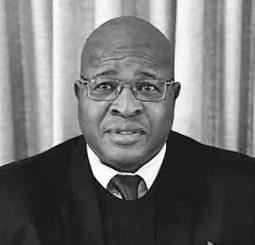
6 minute read
publishingeditor
started during the infamous wasted 9 years and the new Thuma Mina administration has been trying to rescue the situation by introducing new laws and sadly it has failed to do so. A series of laws were enacted in December 2022 but as it seems, a little too late.

Advertisement
Not that it makes me feel any better, but South Africa was not alone in this round of greylisting, Nigeria also made the list. The other countries that have been greylisted in the past include Botswana and Mauritius from which we can get a sense of what happens to a country that gets greylisted. Not only African states are on the list, Turkey is also on the list. A scary discovery was that when the two states Botswana and Mauritius got greylisted they were also automatically added onto the EU’s list of nonco-operative jurisdictions and the UK’s list of highrisk countries. One may argue that this is unkind, shouldn’t EU and UK have their own systems and methodologies to satisfy first. Perhaps a discussion for another day.
So, in essence this means we are less trustworthy to international markets than we were before the greylisting. This will add an extra burden on the banks and financial institutions when they have to transact with their counterparts and the cost of doing business will increase and guess who will eventually pay for this? Your guess was right! You and I because we use banks, and we are part of the financial system. Also, because it makes South Africa less desirable to foreign direct investors which means less economic activity and less job opportunities. This also means that the efforts of the like of SA Tourism such as the suspicious R1 billion Tottenham Hotspur sponsorship, at least on the part of the business tourism may dwindle.
When Pakistan was greylisted in 2018 and 2019 it lost over R600 billion in economic activity. This is an economy similar to ours in size. So in some instances greylisting may impact GDP.
In this edition of Transform SA we bring you Simphiwe Masiza, the founder of Empowaworx. Masiza’s story is one of hope and resilience. He started fending for himself at a very young age and moved on to build a strong entrepreneurial business, empowering many young people. We also have input by Dr. Tsibani regarding the application of technology in reducing water constraints. There is an advise to government regarding stimulating economic activity.
Water has become a constrained resource and the ambition is to achieve shared economic growth following the principles of Back to Water Business (B2WB), Business Expansion Attraction and Retention (BEAR), visionary leadership in water, and the energy and food (WEF nexus) model.
Utilities play an indispensable role in African economies by providing physical bulk supply of resources including water infrastructure to support energy efficiency and food security. The WEF model is driven by technology to provide advanced connectivity of Community-Based Sustainable Water Management and Observation Systems (CoSMOS). African institutions such as University of Johannebsurg (UJ) and German-African Research think tanks are compelled to adopt the CoSMOS approach to address water efficiency, energy efficiency and food security. This must be aligned to Africa Continental Free Trade Area (AfCFTA) and related international partners such as Agricultural Policy Dialogue between German and African Union (AU) in January 2023.
Programmes and projects like CoSMOS are driven by the fourth industrial revolution (4IR) and have been tested in various countries including Germany with its 14.0. Various programmes are already underway such as the Advanced Manufacturing Partnership (AMP), the Industrial Internet of Things (IoT) from United States of America (USA), Industrie du Futur or Future Industry by France, Made in China (MIC) 2025, Society (S5.0) of Japan, and Education 5.0 (E5 .0) in Zimbabwe.
Based on the aforementioned international best practices using North-South and South-South methodology there is compelling evidence of a Community-Based Sustainable Water Management and Observation System (CoSMOS) in Mpumalanga which is driven by the fourth industrial revolution (4IR), fifth industrial revolution (5IR), Artificial Intelligence (AI), Internet of Things (IoT), Big Data Analytics, Information Communication and Computation Technology (ICCT) , fifth-generation wireless (5G) and sixth-generation wireless (6G).
Some of the objectives of CoSMOS for transformation and sustainable development include:
• Creation of resilient communities and societies by promoting human values, fighting poverty, crime, diseases, deprivation and social ills;
• Partnerships with African organs of civil society, governments and businesses to form trialogue model of governance informed by universal access plan to address weak links in the distribution of wealth using AfCTA;
• Provision of a comprehensive integrated service package using IoT and 4IR , and One Stop Shop (OSS) for meeting African Union (AU) Agenda 2063 performance targets and enhance localisation and beneficiation of products for commercialisation;

• To identify WEF nexus sins and data gaps for remodelling and forecasting analysis;
• To collaborate on research that is aimed at improving co-existence between human and environmental needs as per findings report by German and South Africa water partners on the 30-31 January 2023 CoSMOS workshop in Berlin;
• To prioritise training, retraining, retooling and upskilling to address current and future skills required for adaptive capacity to 4IR and related technological disruptions.
Disruption by technologies indicates that water utilities must adapt to an era of digital water, energy, food, ecotourism, and hospitality. Equally, on the occasion of the Global Forum for Food and Agriculture (GFFA) in Berlin in Germany in January 2023, the German Federal Ministry for Food and Agriculture, Cem Özdemir, and Commissioner for Agriculture, Rural Development, Blue Economy and Sustainable Environment of the African Union (AU) have signed a declaration of intent in order to cooperate closely on key issues of food systems transformation in future.
For this purpose, the German Federal Minister of Food and Agriculture (BMEL) is initiating an “Agricultural Policy Dialogue” with the AU. The aim of this Agricultural Policy Dialogue is to make water, agriculture, energy and food systems in Africa crisisresilient and more climate-friendly. As part of this transformation agenda for African countries, the CoSMOS approach may lead to support of agribusinesses, commercial and emerging farmers structured programme of action and skills transfer on technology for monitoring and modelling various transformation scenarios and products.
Contributors
Nomlayo Mabhena
Nomlayo Mabhena-Mlilo is a Senior Associate at Cliff Dekker Hofmeyr Dispute Resolution practice. She focuses on commercial litigation with specific attention to property and property finance-related litigation for major financial institutions. She further focuses on project finance litigation for StateOwned Enterprises, and has experience in petroleum franchising litigation. Her practice extends to administrative law, business rescue, and insolvency law.
Dumisani Hlatswayo
Dumisani Hlatswayo is an award-winning novelist, short story writer, and copywriter. His novella Inhlonipho is currently prescribed for grade 9’s. In 2012, Hlatswayo’s drama, Ngixolele Mngani, was awarded second place in the Maskew Miller Longman award.

In 2016, Ukhozi FM aired his drama, Singcwaba Nini. In 2017 Dumisani’s second novel Imibala Yothando won the Sanlam Literature Award For Youth. His novel Ithuba Lesibili was shortlisted for the same award. He recently contributed a short story for an anthology, Please Like What You See.
Sinqobile Khuluse
Sinqobile Khuluse (BA) (LLB) is the Head of Human Resources at Sandock Austral Shipyards. Khuluse hails from a humble home in Umlazi township. An Admitted Attorney specialising in Employment law. Khuluse has a passion for manufacturing having previously worked in the Automotive manufacturing sector.

DR. FUMENE GEORGE TSIBANI


Dr. Fumene George Tsibani has over 27 years experience in public governance and administration. He is an independent Institutional Development Expert in Infrastructure Planning and Strategies, Capacity Building, Monitoring and Evaluation, Social Research and Evaluation, Public Policy and Leadership. He holds a Masters and PhD In Sociology (SU) and several other professional certificates.
Professional Membership are: Water Institute of Southern Africa (WISA) and member of Black Business Council (BBC) and Black Business Council in the Built Environment (BBCBE) and BBC Infrastructure: Water and Sanitation chairperson 2017 todate. He has written a book entitled: Nation Building Plan between 2020 and 2064.
It is often said that “ the wheels of justice turn slowly but grind exceedingly fine .” But what happens when the justice system itself is battling to achieve the kind of change that is essential for the achievement of constitutional imperatives such as the promotion of access to justice?
The Department of Justice (“ Department ”) has, since the dawn of democracy, undertaken to take strides in transforming the legal sector. The Justice Vision 2000 document envisioned a new system of justice for South Africa. There was, at that stage, a realisation that the new administration had inherited a legal system that was designed to implement colonial and apartheid policies.
In Justice Vision 2000 it was recognised that the legal profession has to be transformed to be able to respond appropriately to the needs of all the people of South Africa and it was stated that the Department would be giving attention to such transformation. In so doing, one of the key result areas that the Department would focus on was a “ well-trained, broadly representative, accessible and evenly distributed legal profession ”.









